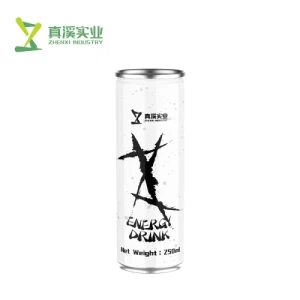In the competitive and fast-paced world of beverage packaging, aluminum can manufacturers are key players who must adhere to strict quality standards to ensure the safety, reliability, and consumer satisfaction of their products. Maintaining high-quality standards involves precise manufacturing processes, thorough testing, and continuous innovation. Here’s a detailed look at how manufacturers maintain the quality of aluminum cans.
Rigorous Material Selection
High-quality starts with high-quality materials. For aluminum can manufacturers, choosing the right grade of aluminum is crucial. The aluminum used in can production must be both lightweight and strong enough to withstand the pressures of carbonated beverages. Manufacturers often use a specific alloy known as 3104-H19, which offers excellent formability and corrosion resistance—ideal properties for beverage cans that must endure various environmental factors without degrading.
Advanced Manufacturing Processes
Precision in manufacturing is non-negotiable. Aluminum can production is highly automated to ensure consistency and efficiency. The process typically begins with an aluminum coil cut into sheets, which are then molded into cup shapes. These cups are drawn and ironed in a multi-stage process to create the thin-walled can bodies without tearing the metal. Throughout these stages, Aluminum can packaging manufacturers utilize state-of-the-art machinery that monitors dimensions and material integrity in real time to ensure every can meets exact specifications.
Consistent Thickness and Strength Testing
To ensure that each aluminum can can withstand internal pressure and external forces, manufacturers conduct regular thickness and strength tests. These tests are designed to simulate the conditions cans will face during shipping, handling, and storage. Specific metrics such as the can’s ability to handle up to 90 pounds per square inch of pressure without deforming are critical benchmarks that must be met.
Coating and Lining Integrity
Safety and consumer health are top priorities. All aluminum cans are coated internally to prevent the aluminum from reacting with the beverage. This internal lining is usually made of a food-grade epoxy or polyester that is non-reactive with the contents of the can. Manufacturers routinely test this lining for integrity, ensuring there are no breaches or inconsistencies that could lead to contamination or quality degradation over time.
Continuous Quality Checks
Quality control is an ongoing process. Throughout the manufacturing process, samples are regularly taken and tested for various quality parameters, including seam integrity, coating uniformity, and print quality. Modern aluminum can factories are equipped with sensors and cameras that perform hundreds of checks per minute, flagging any anomalies for human inspection.
Environmental and Sustainability Practices
Quality is not just about the product but also about how it's made. Aluminum can manufacturers are increasingly focusing on sustainability, recycling used cans, and reducing waste and energy consumption in their factories. These environmental efforts not only meet regulatory requirements but also enhance brand reputation and consumer trust.
Staying Ahead with Innovation
In an industry driven by consumer demand and technological advancement, staying ahead means continuous innovation. Aluminum can manufacturers invest in research and development to improve their can designs, making them lighter without compromising strength, and more cost-effective to produce.
Aluminum can manufacturers maintain quality through a combination of high-tech manufacturing processes, strict testing protocols, and ongoing commitment to improvement and innovation. This rigorous approach ensures that the cans not only meet the high standards of durability and safety but also support the sustainability goals of the modern world.
